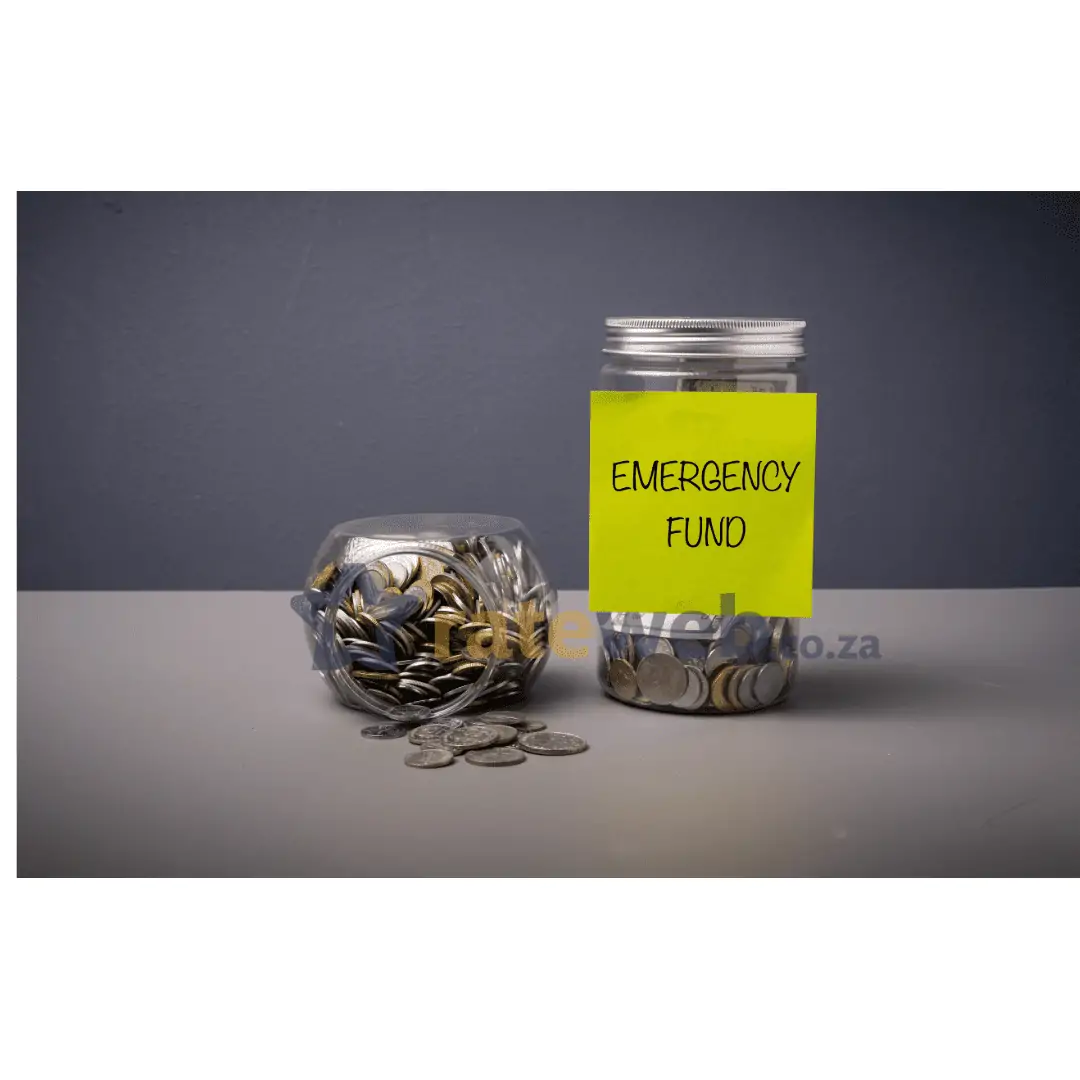
An emergency fund is money placed aside in case of an unanticipated expense, such as a car breakdown, a loss of income, or other uninsured events. An emergency reserve is essential for coping with the financial consequences of unexpected expenses.
In South Africa, you’ll need an emergency reserve of R30000.00 on average. It is crucial to note, however, that the amount you require is mostly determined by your lifestyle. However, as a general rule, you should set aside at least 5% of your annual net income. There are three factors to consider when creating an emergency fund: how much to save, how to attain your savings target, and where to put the amount.
One of your initial savings and investing goals should be to build up an emergency fund. This is especially true for business people, entrepreneurs, and contract workers, given the status of the South African economy.
While the primary purpose of investing is to create money that may be utilized later, the primary goal of an emergency fund is to safeguard you now. An emergency fund should ideally be large enough to cover at least six months of your household expenses, or longer if necessary.
Your goal should be to maintain your quality of living without depleting your savings, as this could jeopardize your long-term financial plans. To begin, compile a list of all of your monthly expenses, such as rent, mortgage/bond payments, car payments, groceries, and insurance. Don’t forget to include smaller items like cell phones, energy, water, and other utilities in your budget.
After you’ve made your list of expenses, add up the total and multiply it by six months, or however long you want it to last. This is the amount you want to save for an emergency fund. While achieving this goal may take some time, don’t let the effort required deter you.
There is no better time than now to begin saving. You might wonder, “How can I begin saving for an emergency fund?” The first step is to cut back on your expenses. When putting together your monthly household bills, consider whether everything on the list is absolutely necessary.
You may have noticed that you’re spending an extra R200.00 per month on Netflix or Dstv, which you rarely use. While R200 may not seem like a significant amount to put to your emergency fund, every little bit helps and adds up over time. “If you can’t handle your cents, you won’t be able to manage your millions,” a wise man once said.
Following the elimination of superfluous expenses, the next stage is to set aside a specific amount of your monthly earnings. Every investor’s amount will be different, but you should endeavor to make each monthly contribution matter.
| Savings Account | Minimum Deposit | Interest Rate |
|---|---|---|
| ABSA TruSave | R50.00 | 5.20% |
| African Bank MyWorld Account | R1.00 | 7% |
| Capitec Fixed Term Savings | R10000.00 | 9.50% |
| FNB Savings Account | R0.00 | 7.8% |
| Investec Prime Saver | R100000.00 | Prime Linked |
You might want to think about setting up a separate account for your emergency money. Most banks will assist you in opening a second account, and many will even automatically deposit a portion of your salary into it.
Take a look at our guide to the top savings accounts. Because catastrophes can strike at any time, money in an emergency fund should be liquid so it can be accessible promptly. This entails storing it in an account from which funds can be taken without penalty. Your bank’s checking and savings accounts are examples of such accounts.
Both of these services allow you to access your funds at any time. You might also keep your money in a money market account. A money market account is similar to a savings account, but there are a few distinctions. Money market accounts often have monthly transaction limits and require minimum balances to be maintained.
You’ll be able to earn a greater interest rate on your money in exchange for these restrictions. Once you’ve met your rainy day fund objective, a money market account can be an excellent long-term solution.
It will not appreciate as much as your stock investments, but it will be less vulnerable to market volatility. Consider starting a rainy day fund today if you haven’t already.
No one wants to get caught in a storm without an umbrella.
This website uses cookies.
View Comments
please hele me with those funds